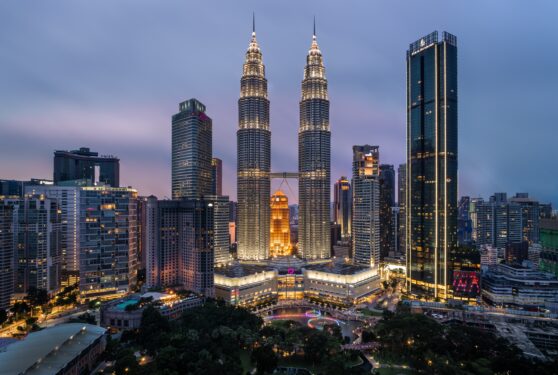PRO-ACTIVE intervention measures by the Government is required to facilitate the recovery of Malaysia’s retail industry which has been badly affected by the COVID-19 pandemic.
Putting high hopes on the National Immunisation Programme to spur Malaysia’s economic recovery from the doldrums may not be wise given it is unlikely that 80% of the population can be vaccinated by end-2021 at the rate the COVID-19 vaccine is being rolled out.
In 2020, the retail industry registered its worst performance in over 20 years with only RM90 bill sales, according to Associated Chinese Chambers of Commerce and Industry of Malaysia (ACCCIM) SMEs committee chairman, Koong Lin Loong.
He is cautiously optimistic of the industry’s outlook in 2021 – expecting it to be better than 2020 – but the reality is such that a total recovery will not happen overnight.
“For one, consumers are still not confident to go out and shop. Many go to malls or shops to make specific purchases then go home. They don’t browse or spend time in the malls like they used to,” he told FocusM.

“Before the pandemic, consumers will go to malls to shop, then spend their time having a meal or catch a movie before going home. But now, you won’t see such activities. I think 90% of these activities are gone.”
Koong’s conservative opinion is that retailers themselves are not expecting a speedy recovery for their industry.
In order for the Government to help the retail industry – or to save the jobs of thousands who depend on it – Koong proposes a series of intervention measures that can be implemented immediately.
“We would like to see the Government enhance and extend measures that help the bulk of business like the wage subsidy programme,” he suggested.
“This needs to be targeted to help those in the retail industry.”
Equally important in his view is the loan moratorium for retail businesses. This needs to be extended as it will help those who have been affected to ease their cash flow.
“As we know, the retail sector is all about cash flow,” stressed Koong.”Another way the Government could help with the cash flow of businesses is to re-schedule the monthly tax payment for private limited and sole proprietor companies.”
This means instead of having to pay taxes on a monthly basis, companies can be allowed to pay them once every two months.
With regard to the lifting of interstate travel restrictions, Koong noted that clear and workable standard operating procedures (SOPs) are also critical to the survivability of many industries, especially those which depend on the retail and tourism sectors.
“This will also improve tourist footfall whereby many retailers – from malls to roadside traders – depend on,” he observed.
Last but not least, Koong also spoke on the need for the authorities to tackle the “shadow economy”, particularly the sales of illicit or smuggled goods such as illegal cigarettes.
“The measures announced in Budget 2021 aimed at curtailing the illegal cigarettes trade is good but it will not have a direct positive impact towards the retail industry,” he pointed out.
“Legitimate businesses play by the rules and have incurred a high costs for doing so. Unfortunately, illegal businesses do not play by the rules, hence are able to sell their illicit and smuggled goods at cheaper prices, making it difficult for real businesses to compete.”
Sadly, consumers will opt for illegal products that are cheaper rather than the legal products that are expensive.
“While enforcement is important, the Government also needs to close loopholes and clear up all the ‘grey areas’ to curb illicit trade to safeguard retail sector businesses,” added Koong. – March 12, 2021
Photo credit: SelangorKini










